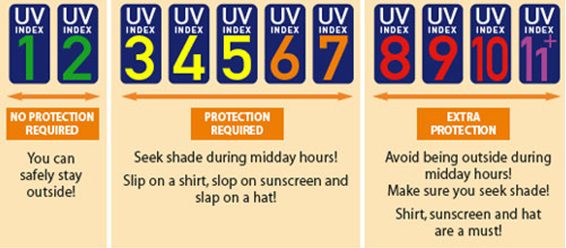| Featured Columnist – Health Ileana Alfaro Certified Dermatologist |
Because of the increasing frecuency of skin cancer in our country and the world, Derrmatologists are supporting awareness among the population about the risks of sun exposure and tanning beds.
Between 1997 and 2008 skin cancer affected 5,507 costaricans, according to CCSS´s data. Cases increased in a 100%, and by 2009 there were 409 new cases.
Ultraviolet (UV) light is electromagnetic radiation with a wavelength in the range 10 nm to 400 nm. It is so named because the spectrum consists of electromagnetic waves with frequencies higher than those that humans identify as the color violet. Its natural source is the sun, and one of its artificial sources is the tanning bed.
The electromagnetic spectrum of ultraviolet light can be subdivided in the following ranges: UVA (400-320nm), UVB (320-280nm) and UVC (280-200).
The UV index is an international standard measurement of how strong the ultraviolet (UV) radiation from the sun is at a particular place on a particular day. Its purpose is to help people to effectively protect themselves from UV light. It is a scale primarily used in daily forecasts aimed at the general public as a code with colors:

Ultraviolet (UV) irradiation present in sunlight is an environmental human carcinogen. The acute effects of UV irradiation on normal human skin comprise sunburn, tanning, inflammation, and local or systemic immune system suppression.
UVA, UVB and UVC can all damage collagen fibers and thereby accelerate aging of the skin. UVA can contribute to skin cancer via indirect DNA damage (free radicals and reactive oxygen species). It penetrates deeply but it does not cause sunburn. Because it does not cause reddening of the skin it cannot be measured in SPF testing. There is no good clinical measurement for blockage of UVA radiation, but it is important that your sunscreen blocks both UVA and UVB. The radiation changes the DNA molecules in skin cells causing mutations, which can result in cancerous growths. This cancer connection is one reason for concern about ozone depletion and the ozone hole.
As a defense against UV radiation, the amount of melanin in the skin increases when exposed to moderate (depending on skin type) levels of radiation; this is commonly known as a tan. The purpose of melanin is to absorb UV radiation and dissipate the energy as harmless heat, blocking the UV from damaging skin tissue. Sunscreen prevents the direct DNA damage which causes sunburn.
Some sunscreen lotions now include compounds such as titanium dioxide which helps protect against UVA rays. Other UVA blocking compounds found in sunscreen include avobenzone and zinc oxide.
UV light intensity is higher now in the country than 10 years ago by 13,5%. That is the reason that concerns us all, and this is why MINAET (Ministerio de Ambiente y Energía) and IMN (Instituto Meterelógico Nacional) have Costa Rica´s UV index available at http://www.imn.ac.cr/educacion/UV/INDICEUV.html, so that people can take proper measures to avoid UV exposure damage. Actually, there are cities in the country such as Nicoya, where its expected a UV index as high as 15.
Some of the best sites in the States for UV index predictions are:
http://www.cpc.ncep.noaa.gov/products/stratosphere/uv_index/
http://www.cpc.ncep.noaa.gov/products/stratosphere/uv_index/uvi_map.gif
http://www.nws.noaa.gov/view/national.php?prodtype=ultraviolet
http://www3.epa.gov/ozone/
http://usatoday30.usatoday.com/weather/wuv.htm
Protection measures:
Use sunblock with UVA and UVB protection and a SPF 30
Reapply sunblock each 3 hours
Avoid tanning
Avoid sun between 10am and 3pm
Use long sleave, hat and umbrella
Use sun glasses with a 400 protection
